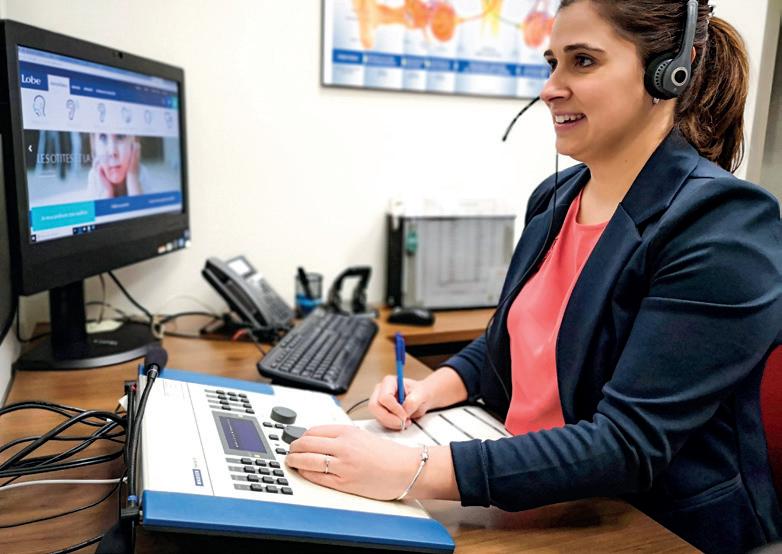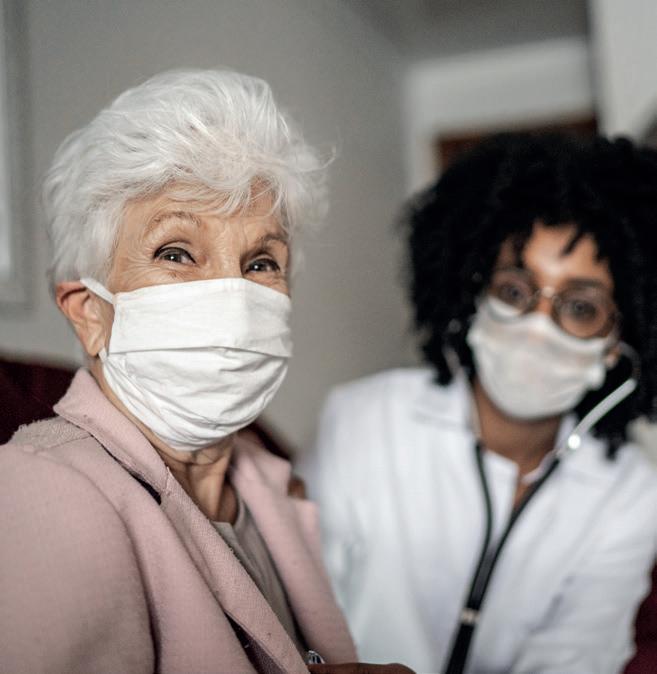
1 minute read
ALL ABOUT SPEECH-LANGUAGE PATHOLOGISTS
All About
SPEECH-LANGUAGE PATHOLOGISTS
As the name suggests, speech-language pathologists help people with speech and language. What you might not know is that they treat swallowing issues, too. The role of the speech-language pathologist is to assess and treat people of all ages in order to develop, restore, or maintain their ability to communicate, speak, write, read, understand, and swallow. They also support people’s autonomy and participation in social, educational, and professional activities.1
Speech-language pathologists work with a wide variety of people. Depending on their workplace and expertise, they might work with children who have a stutter, a language disorder, or speech sounds disorder. They could also work with youth who have reading and/or writing difficulties or struggle with social communication. Or they might work with adults who have an acquired language disorder after a head injury or stroke. Speech-language pathologists also treat people with orofacial myofunctional disorders, like lisping and atypical swallowing, that are frequently picked up by dentists. And the list goes on! Speech-language pathologists also work with the people around the patient. They need to make sure care is coherent across all areas of the patient’s life, so they work with the patient’s family and other important people (like teachers, educators, and aides). A multidisciplinary approach to care is important, so they frequently work with other healthcare professionals like audiologists, doctors (such as ENT specialists), occupational therapists and physiotherapists during appointments and follow-ups. Naturally, speech-language pathologists work with patients as well, providing screening, assessments, and treatments. And last but far from least, they regularly take part in activities to promote healthy habits related to their field.
Léa-Laurence Dionne
Speech-language pathologist practicing at the Québec City Lobe clinics
GOOD to know
Becoming a SpeechLanguage Pathologist
Speech-language pathologists need to have at least a Master’s degree. Furthermore, speechlanguage pathologist is a reserved profession, meaning that they need to have a permit from the Ordre des orthophonistes et audiologistes du Québec to practice. Finally, speech-language pathologists need to be good educators with good people skills so they can build relationships with patients and their healthcare professionals.
Reference 1. Ordre des orthophonistes et audiologistes du Québec. Qui est l’orthophoniste? Online. https://www.ooaq.qc.ca/consulter/orthophoniste/definition-orthophoniste/.
Consulted on November 19, 2020.







